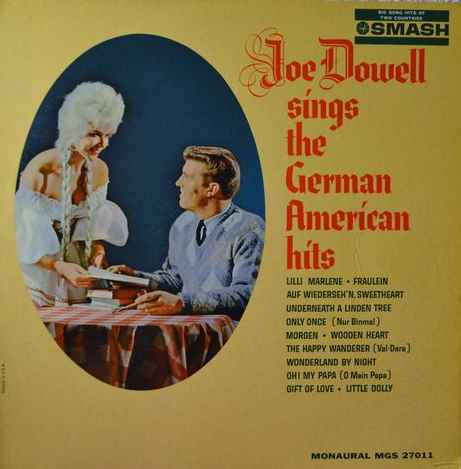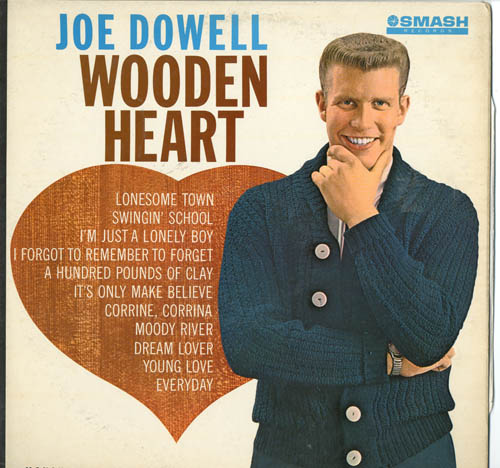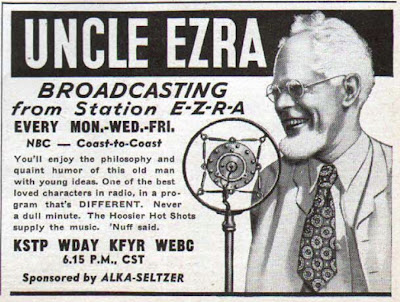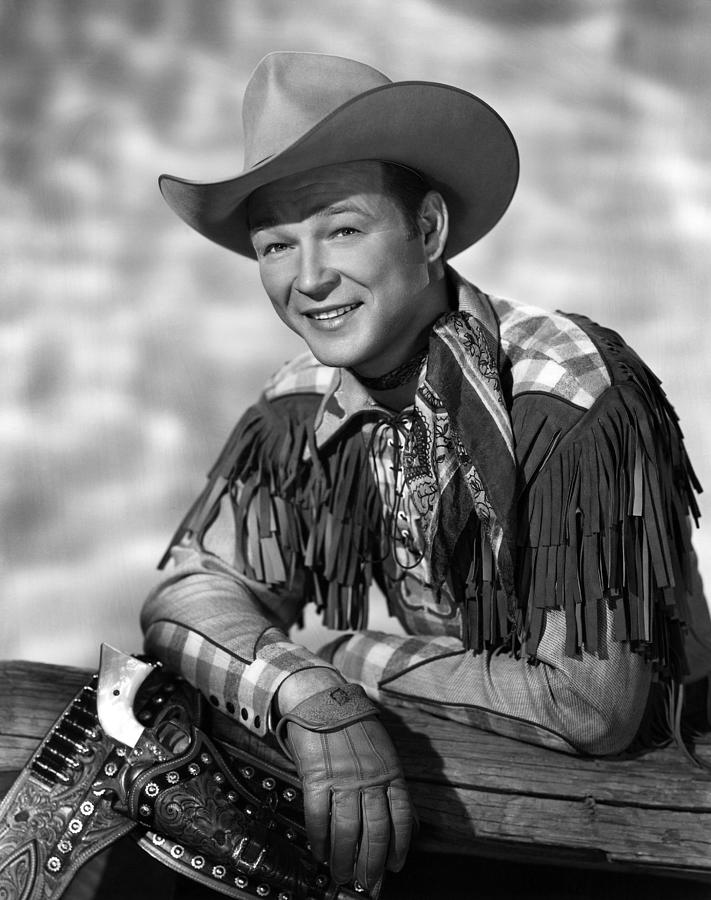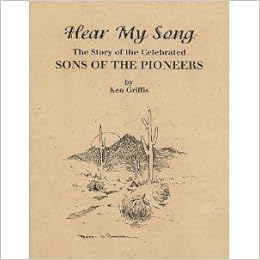On the Poo Poodles' 2006 album Here Comes the Future... The Future Is Now! only three of the songs were longer than a minute. The shortest song was five seconds long.
Short songs aren't what made the Poo Poodles interesting, though; the Poo Poodles were interesting because they were DIY to the max. The Poo Poodles existed in their own twee-punk universe, singing with joyful abandon—about animals and babies and punk rock and absurdities—to music that barely held together for the length of a fragment, all recorded on a thrift-store tape machine. They were like a mashup of Half Japanese and Sesame Street, presented via 30-second audio clips.
The two members of the Poo Poodles had no names, only initials. P, the boy, sang and played guitar, drums, and keyboards. BP, the girl, showed up occasionally to deliver spontaneous, unrestrained vocal performances that were some of the Poodles' best moments, like on "Punk Rock Fury" and "Bananas."
The aforementioned Poo Poodles' album, Here Comes the Future... The Future Is Now, was a compilation of the band's various cassette and CD-R recordings. It was apparently the sole release of the Quiet Life label, which is otherwise a clothing shop or something. The album not only sold out but also charted on the CMJ college radio chart. The band seemed well positioned to become the next.... Well, the next Poo Poodles. But then they abruptly stopped recording. This interview is the result of my own desire, as a fan, to find out what happened.
Music Weird interviewed P from the Poo Poodles on April 27, 2014.
Tell me a little bit about the members of the Poo Poodles: Where you're from, any other bands you were in, what kind of music you were into back then, how the band started.
Both BP and I are from Atlanta. We moved to Chicago in the mid-nineties and that is where the Poo Poodles were formed. We loved the city of Chicago itself. We lived there for five years, but the South has this season called "spring" which we could not live without, so we moved back. We lived in Birmingham, Alabama, for while before settling back in Atlanta.
I was in a few garage bands prior to meeting and marrying BP. I play the drums and a little bit of guitar. I can't really "play" the guitar. I know a few chords and can strum rhythm pretty good. But as far as knowing keys and which notes go together for a solo, I'm clueless. But I always had the instruments around. I saw Mike Watt play in Chicago and he was kind of berating a guy in the crowd who was shouting out for him to play a certain song. Mike Watt said, "Form your own band," and I took it to heart. Why not? Everybody should form a band or record songs. I had found a cool old vintage 2-track tape machine at the thrift store and we started laying down tracks.
It was just for fun, especially with BP. She had no interest in being in a band. But she'd sing along and that's where the magic happened. I love her voice and she was uninhibited because she really didn't care.
We both listened to different kinds of music. I listened to a lot of punk rock. But your standards, too: Beatles, Stones, Velvet Underground. Queen is one of my favorite bands. BP doesn't like punk rock at all. She's a great filter in that regard. I couldn't really point to any specifics in regard to directly influencing our style or sound. If you are some type of musicologist, perhaps you could determine I listen to a lot of Devo, the Minutemen, KISS, Butthole Surfers. Although, in the late nineties, we both listened to a lot of Beck, Jon Spencer Blues Explosion, Luna, Beth Orton, and a lot of reggae. I don't think we sound like anyone though. We'd get feedback that we sounded kind of like LiLiPUT/Kleenex. But I had never heard of them. Although, I am a fan now.
I will confess, some of the times my vocals are me trying to sound like the vocals from "Blockhead" by Devo. Listen to our tune "Chipmunk"—my vocalization is directly from "Blockhead."
We were just DIY and kind of inept, really. As I said, I can't play guitar. Most songs were built around the melody of the vocals. We'd be out in the world and a lyric would pop up, influenced by whatever, and a melody. That would be the song. As we say, "Being in tune isn't what we are about."
I wanted to include a discography, but a lot of your releases are pretty obscure. (Check out the discography on the Poo Poodles website.)
Our discography is kind of an always-evolving entity. Almost everything was DIY. We put it out ourselves. Designed and printed the art. Mixed the recordings. Burned the CDs, etc. Most of it was given away. If you wanted our CD, we would send it to you. And we considered something to be released even if we only made one copy. So we have a pretty vast discography.
| Poo Poodles Fan Club/Naysayers Guild info sheet |
The Quiet Life put out a compilation CD. It is called Here Comes The Future… The Future Is Now. It had 25 tracks. It was sent to radio and actually charted briefly. To confuse matters, we also have a recording called Here Comes The Future/The Future Is Now. The "Squeaky Little Wheel" single was put out by a skateboard company called Ruby Ropa and has tunes from Punk Rock Fury and Here Comes The Future. We made certain it didn't duplicate anything from the Quiet Life release.
But it started with Nerds On Parade. Originally titled Lollipop. I was trying to coin a term for what we were doing, and I had “lollipop rock.” But BP changed it to Nerds On Parade. That’s more apt. This was our first recording. It was actually a cassette tape. I'm sure we burned discs, too. But after the initial release, we never made this readily available. OOP. It was always special to us, so we considered it OOP. Some of the songs made their way onto the Future Is Now compilation. Maybe one day we will re-release it. I can't recall the total right now, but it was about 30 songs. Our definitive song, "Bananas," is on this.
Next was Punk Rock Fury. We recorded this and Here Comes the Future at the same time. That was a fast and furious time. We were always making songs. It was like Parliament/Funkadelic. I was George Clinton, not sure what song was for which record. We had planned for Punk Rock Fury to be all covers. Basically, I was learning how to use our new Tascam 4-track. Nerds was recorded on 2-track. But songs would come, and I'd think, "This doesn't seem like it should go on Punk Rock Fury." And it'd be slotted for Future Is Now, which ended up with 30-plus tracks. And Punk Rock Fury evolved to include originals.
I gave a copy of Punk Rock Fury to the dude who worked at my local record shop, Planet of Sound in Chicago, and he told me it was "brutal." As in "horrible." Months later, a fan who had discovered us on Myspace or Garageband contacted us and told us they had bought our record. I was perplexed, as you couldn't really "buy" our records. And when we asked, he told us he found a used copy at a record store. It turns out he bought it at Planet of Sound! I thought it was pretty amazing. If you think about how tiny our fan base was/is, and for this one guy to happen into the ONE RECORD STORE ON EARTH that had ONE COPY of Punk Rock Fury…. Magical, really.
A note about Here Comes the Future: When we first put it out, it had "Rocket Ride" by Ace Frehley/KISS on it. But we later removed that track. So if anyone has it with "Rocket Ride," it's crazy rare!
We have a recording called The Kitten EP that I consider to be officially released. But it is lost—the artwork and the actual original master disc. Someone out there has a copy. I'd love to get it, as I don't have those songs in the original mixes. I have all the original tapes. But I won't be able to mix them the same. I'm in a different place now. I might want to tinker with them. Regardless, some cool tunes. "The Black Squirrel" and the Ramones' "Mama's Boy" are two that stand out. Our first foray into robotic-rock, called "Kitten." Some of the tracks on this were leftovers from Here Comes the Future.
When we moved to Birmingham we had more space so we created the Cul-De-Sac studio. I was able to set up my drums. So the stuff we were recording had a lot of real drums. More guitar. Cowbell. "College" rock. We Are the Greatest Band on the Planet and We Go Jackpot were recorded there.
The "Frusciante" single: Our ode to the Chili Peppers' wacky guitarist. I'd say his first solo record was an influence on me. It is that fine line between being genius and being horrible. I'm not comparing the Poo Poodles to John Frusciante, but we are similar in a way. You either think we are amazing, or you think we are insanely terrible. But, I love that kid.
Next was the Banana Attack EP. By this point, BP had basically stepped away. So I was noodling with remixes. Trying to create tunes with already existing material. It was our first foray into sampling. I think "Bananas Galore" is pretty good until I ruin it with my rap at the end. The remix of "Bananas," called "Monkey Mix," is pretty good.
I was able to convince BP to step behind the mic for "PP Rockers." This is our version of "Clash City Rockers." A little trivia: This was recorded on a Paul Stanley signature guitar I purchased at Target. Afterward I returned it! This is the last thing we've released. It was in 2007.
 |
| An advertisement for the actual guitar that is under discussion |
We have a few tunes still in the can. One really great BP vocal on a track called "Little Chompers." It's kind of our "You Know You're Right" by Nirvana. It will surface eventually.
What happened to unreleased album The Irony of Being a Reagan Youth Fan?
That is still an idea, a concept, for a record. I did start working on it. Actually started recording a few tracks. We have a few songs. But it's an interesting idea. I mean, what is punk? What is punk rock about? To me, to the Poo Poodles, it's DIY. It's pure freedom. It's D. Boon. It's thinking for yourself. Being yourself. The true individual. That's what our song "Freddie Mercury Is Punker Than You, Punk" was all about. But when it comes to "punk" rock, punk has so many dogmatic rules. A uniform. Conforming knuckleheads in Black Flag or Ramones t-shirts.
Of course, my worldview comes with getting older, and wiser, too. Teenagers are pretty arrogant. Just as I was at that age. I had a Black Flag t-shirt at that age. But now I know what they don't know. What they think they know. What they don't even know that they don't know! That was "Dumb Punk Kids": "You're just a couple of dumb punk kids, you're not doing it for yourselves." That was plainly stated. But as I've gotten older, they seem to get dumber. I don't want to sound like I'm knocking kids. I get it. Find yourself. But having an "open" mind should mean having an open mind. If I try to explain to some young punk rocker in a Misfits t-shirt, "Hey, why not listen to Kelly Clarkson?" I get a blank stare. It boggles their "open" minds. But I was like that, too. Seeing the Minutemen helped me understand things better.
I discovered punk in the '80s. During Reagan. The DKs. The Let Them Eat Jelly Beans LP. "World Destruction" by Afrika Bambaataa and Johnny Lydon. All that. Punk rockers seemed to be anti-government. But now it seems to be the opposite. It's statism. At least, that's my POV. That's how I see it. Most "punk rockers" lean left. That's all good. Social issues, blah blah blah. But now instead of being anti-government they want the government to wrap them up in a Snuggie®. They want the government to control the people they disagree with and tell them what and how to think. Of course, they don't think that. Or see it that way. But I ask, where is the 2014 version of Let Them Eat Jelly Beans? That's what The Irony of Being a Reagan Youth Fan asks.
Reagan's quote, “Government is not a solution to our problem: government is the problem.” That sounds good to me. Of course, Reagan was a big spender, too. He grew the deficit. Expanded government. I definitely do not align myself with the GOP. They are horrible. All politics, the way Washington works, sickens me. It's like professional wrestling. But I keep up with it. I want to know what's happening. And both parties are full of it. I like to consider myself a libertarian. And in local elections I can vote that way. But if my choice is a conservative or a statist leftist, I'll lean conservative. But, oh no! That's not punk rock! Or is it? I think for myself. So yes it is. "Freddie Mercury is punker than you, punk."
So, that's The Irony of Being a Reagan Youth Fan. It's a political record. A political record with kittens. What it means to be a punk rocker with a mortgage and a family. Which is not something we've ever done. But I want to finish it. The problem, as always, is BP has no interest in it. She has no interest in any new Poo Poodles recordings. And I can only put so many P vocals on a Poo Poodles record. I mean, “Guns of Brixton” is an amazing tune, but you don’t want an entire Clash record with Paul Simonon vocals.
One of the many fun things about the Poo Poodles is that BP is such an uninhibited vocalist.
Uninhibited is a good observation. She really didn't care. We were just having fun. It wasn't "real" to her. And the magic came from that. I played all of the instruments. The arranging and "producing." And when she'd record her vocals, it was one take. Maybe two. And that was that.
Is anything easier about writing tons of short songs, compared to writing fewer long songs?
I don't think it's about ease. Our songs can only get so good. They are what they are. Whenever we have tried to really work on a song, it gets worse. It's all to do with our abilities. Or lack of. We do what we do. The songs are short because that's what they are. We don't ever think, "Oh, let's make short songs." The songs just come to us—at least the ones that work. A good Poo Poodles song just comes to us. I've tried to sit down and "write" songs, and they are never any good. The longer I work on a song, the worse it becomes.
Did you play live much or ever tour outside of your region?
The Poo Poodles played a few live gigs. But it was me alone. I gave it a shot. I could see it in my mind. I had a vision for it. Big ideas. A type of live-performance art, with a backing sound system. But it didn't pan out that way. It was just a terrible guitar player singing along to tapes. I contemplated putting together a Poo Poodles live band. So the "Poo Poodles sound system," as I could see it and hear it and conceived it in my mind, could exist. But it never happened. I wish it had.
What were the best and worst experiences of the Poo Poodles?
Hanging out with BP. She's my best friend and it was fun. Our brief run on the CMJ charts was neat. There aren't any worst experiences.
Talk about your upcoming project.
We have a few things up in the air. First is getting our website back up and running.
The Irony of Being A Reagan Youth Fan—I want to finish it and put it out.
We've also been working on a Christmas record! We have several songs in various stages of completion; some just need to be mixed, some have just the tracks, and some written down in a notebook. But it was started about four years ago. So, I sound like Ace Frehley talking about it: "There's a new record coming out." Believe it when you hear it.
We also have one other kind of top-secret project. It's finished. It was finished years ago but never released. It's called Goody Goody Gumdrops. It started as a kind of Poo Poodles side project, but now I consider it to be Poo Poodles. It's different. It has samples. It has our kids singing on it. The concept was to make a punk rock record for kids. I'm not a fan of Ramones "Kidz Bop" type of stuff. Just play the Ramones, right? But, kids like hearing kids' voices. It happened organically. Like I said, I can only do so much on the guitar. I can only make so many "bleep" and "bloop" sounds on our little keyboard. I felt we had kind of hit a roadblock. So I started playing around with samples. I liken it to being our Big Audio Dynamite record. And as it started coming together, I thought: This is punk rock for my kids. My kids love it because they sing on it. I'll be interested to see if anyone else likes it. But that will come out this year.
What's the deal with "Bananas"?
"Bananas," to me, is the epitome of the Poo Poodles. It's what we are all about. It was recorded spontaneously. Written spontaneously. The guitar is out of tune. It was one take. Of course it sounds that way. So, to most people, it's horrible. But some are down with it. And if you can get down with "Bananas," you are down with the Poo Poodles.
I've never told the story of how that song came to be. I don't like knowing all the specifics of what a song means, so we don't explain our songs. But here's the story: We had gone to see Astrud Gilberto. And it was funny. She'd tell an anecdote before a song: "Oh, this song is about this…. I was in Japan when I wrote this…, etc." and then she'd sing the song. And all the songs sounded the same. She's singing in Portuguese, of course, but it was a blur. Everything was "doopy doopy do." "And this song is about…" and it'd go "doopy doopy do." It was funny. So we're at home and we were "singing" Astrud Gilberto-style, and "Bananas" started happening. So I picked up my out-of-tune guitar, hit "record," and BP sang it. And that's "Bananas." That's the Poo Poodles.





